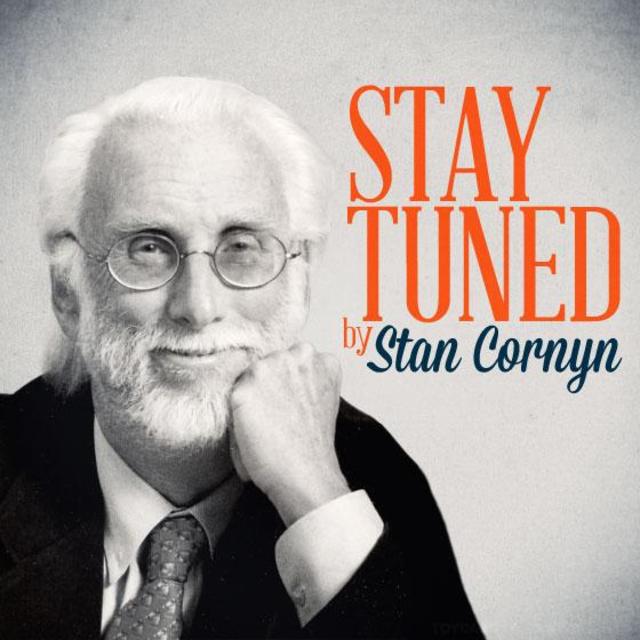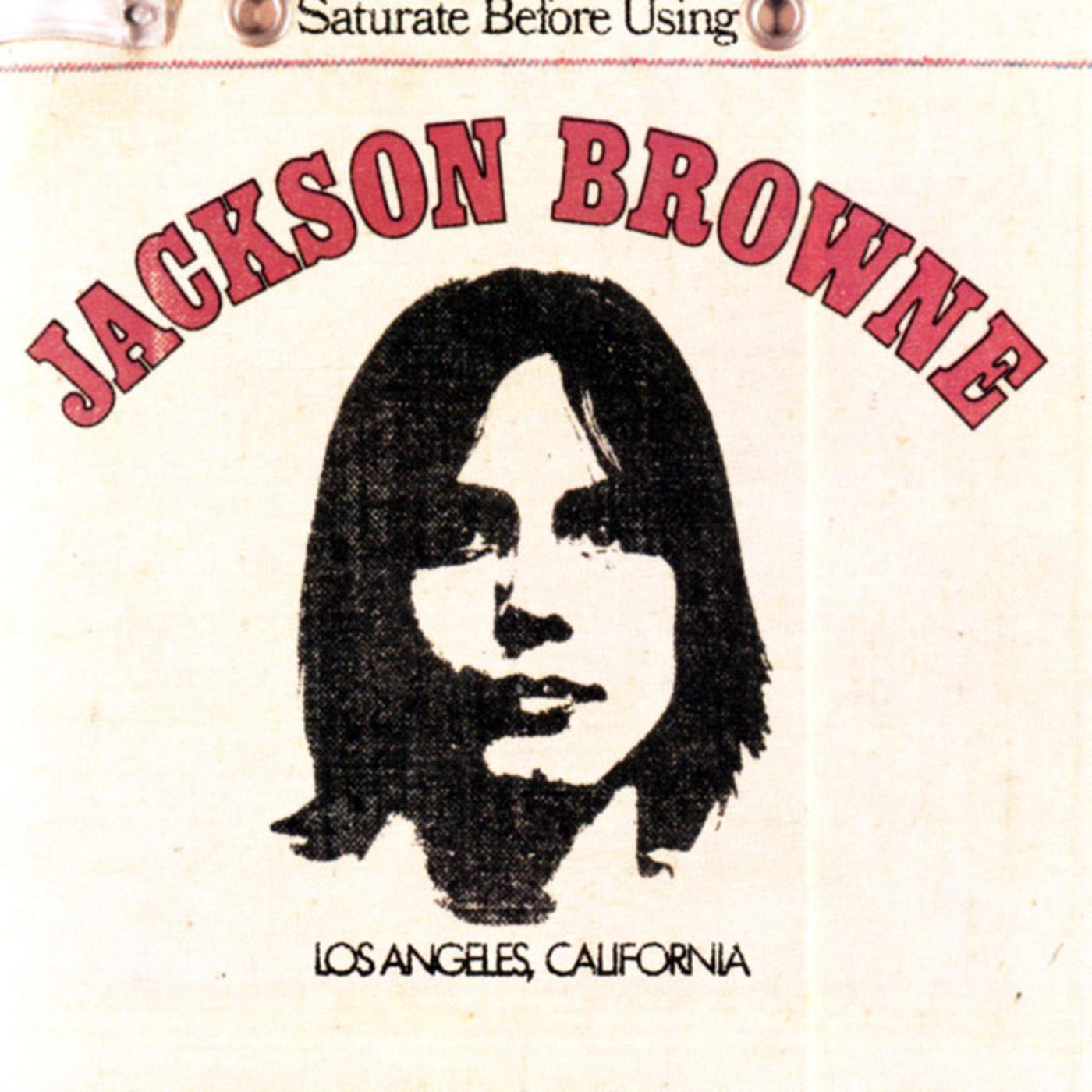Stay Tuned By Stan Cornyn: Geffen’s Asylum

Every Tuesday and Thursday, former Warner Bros. Records executive and industry insider Stan Cornyn ruminates on the past, present, and future of the music business.
1970. David Geffen had been managing singer-songwriter Jackson Browne, but could not find a label deal for him. Having gotten close to Ahmet Ertegun with his Crosby, Stills, Nash & Young deal, David Geffen again called on Ahmet, this time to sign Browne at Atlantic.
“Ahmet,” Geffen urged, “I’m trying to do you a favor by giving you Jackson Browne.”
“You know what,” Ertegun smiled back. “Don’t do me favors.”
“Seriously,” David persisted, “you’ll make millions with him.”
In this conversation, Ertegun remained a few steps ahead of this kid-dynamo. “You know what, David? I have millions. Do you have millions?”
Geffen shook his head. Ahmet knew exactly what he wanted – more talent finding for his Atlantic label. And Geffen’s intensity fit that role.
“Why don’t you make a lot of money?” Ahmet went on. “Why don’t you start a record company, and then you’ll have millions, too. Then we can all have millions.”
As time would soon reveal, David Geffen listened. Down deep. He and Ahmet made a 50/50 profits deal to give David his own label, with Atlantic underwriting the costs of manufacture, distribution, and promotion. And Atlantic would have one more stream of albums to sell.
Ahmet introduced Geffen to the boss-of-bosses up-top, to Steve Ross, and Geffen wrote down Ross’ phone number. Ross, to David, would become another father figure.
Geffen flew back to California and, with his management partner, Elliot Roberts, named and designed a new label, one that would be funded and distributed by Atlantic Records. The name they chose felt like what they and their acts would really wish for: Asylum. Which to Geffen and his artists meant musicians-as-poets who created works uniquely, on their own.
The distribution deal between Asylum and Atlantic was set for three years. At the end of those three, David Geffen had insisted on one deal point that would make him a lot richer: that Asylum would get to keep its own masters, free to move on with its catalogue.
Billboard ran the news: GEFFEN TO BOW LABEL; ACTS TO SHARE IN PROFIT.
Asylum’s first signing would clearly be … Jackson Browne.
Then it got quiet. Asylum had a wee staff of six people, including David. Months went by, but no releases came out of Asylum, and those invoices were all getting paid by Atlantic.
David Geffen, however, was fully in charge.
First Releases
1972, and at last, Asylum had some albums for Atlantic to distribute. This year, eight albums would come out. (They’d signed 12 artists by now, and Geffen-Roberts managed those artists, too. Some artist albums remained en route during 1972.) Among those first eight issued:
Judee Sill
Judee’s was Asylum’s first-released album (on Sept. 15, 1971), although it’s often said the big reason for Geffen to establish Asylum Records had been to get a label for their Jackson Browne asap.
Recording Judee’s was easier to complete. Sill composed her own songs, sang with little accompaniment, either guitar or piano. For her debut album, the most promising song became “Jesus Was a Cross Maker”:
He wages war with the devil
A pistol by his side
And tho he chases him out windows
And won't give him a place to hide,
He keeps his door open wide
Fightin' him he lights a lamp invitin' him,
He's a bandit and a heart breaker,
Oh, but Jesus was a cross maker
Sweet silver angels over the sea
Please come down flyin' low for me
Then, the album that had been so heralded:
Jackson Browne
The cover of Asylum’s second album (first in 1972) featured Browne’s face printed on a background like a burlap water bag. At first, the album bag even opened like a water bag, at the top. Thus those words up there: “SATURATE BEFORE USING.”
Browne’s songs show extraordinary imagery, as in “Doctor My Eyes.”
Doctor, my eyes
Cannot see the sky
Is this the prize
For having learned how not to cry?
Eagles
Out in 1972, Glen Frey, Don Henley and others created one of the best-selling bands of all time: Eagles. Their first album, named for their name, started a long chain of major hits for Asylum. In this debut album were “Take It Easy,” “Witchy Woman,” and “Peaceful Easy Feeling.” The sales numbers stunned Atlantic, and intrigued Geffen, for years to come.
Next from the Eagles would come other major hits, including double-platinum Desperado (1973) and On the Border (1974).
J.D. Souther
All songs in his self-titled album were written by Souther. The most followed of them being “How Long.” Next, at the suggestion of David Geffen, Souther joined into the Souther-Hillman-Furay Band.
Joni Mitchell
Lured by Geffen over from Reprise Records, Joni’s 1972 first for Asylum was For the Roses. Its most-remembered song became “You Turn Me On, I’m a Radio.”
If you're driving into town
With a dark cloud above you
Dial in the number
Who's bound to love you
Oh honey you turn me on
I'm a radio
I'm a country station
I'm a little bit corny
I'm a wildwood flower
Waving for you
Broadcasting tower
Waving for you
And I'm sending you out
This signal here
I hope you can pick it up
Loud and clear
In February 1972, Jackson Browne opened for Joni Mitchell at Carnegie Hall. Ahmet hosted a midnight gala to ceremonially introduce his Asylum Records, in the Sky Garden Roof top over the St. Moritz Hotel.
Geffen spoke his appreciation to Ahmet, saying “We’re going to be partners, in everything, forever.”
Geffen Creates the Asylum Catalogue
With such releases in Year One (1972), David Geffen remained intent, on the phone most of his hours, urging and getting his urges handled by others. Unlike other “label titans,” David never became a rock icon. Never trashed a hotel room, never threw a refrigerator out of a window, never vomited in a limo. Wastes of time those were.
One of Asylum’s six staffers, Jerry Sharell, described life inside Asylum this way: “David Geffen was a positive panic to work for. He was totally driven, quick to read a situation, and insatiable. He only knew #1, and wasn’t happy as #2. Or #10. He sucked up knowledge and used it. He absorbed life.”
A dozen albums would get issued by Asylum in 1973, from a Byrds “reunion” album onward.
Some 1973 releases:
Tom Waits
That Spring, Tom Waits’ Closing Time got attention for the street-based songwriter. Producer Jerry Yester described one evening of the recordings, the one where the title track, “Closing Time,” was recorded: “the most magical session I’ve ever been involved with. At the end of it, no one spoke for what felt like five minutes, either in the booth or out in the room. No one budged. Nobody wanted the moment to end.”
To hear “Closing Time,”


